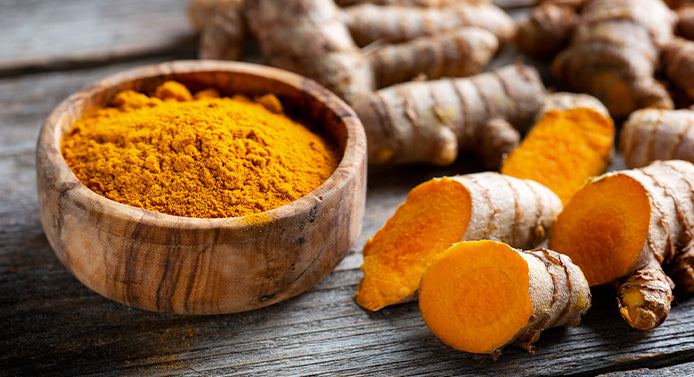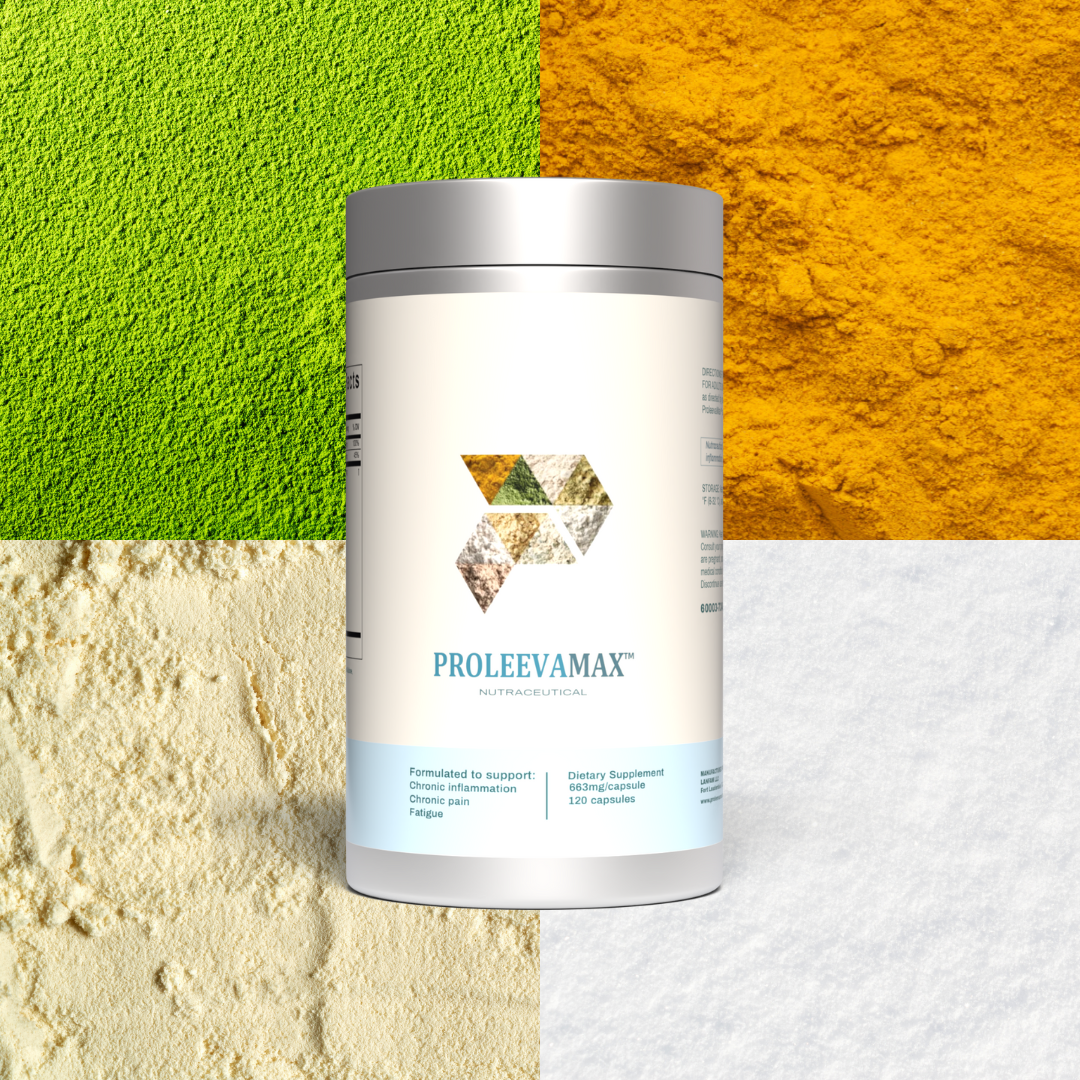Curcumin has received worldwide attention for its antioxidant and anti-inflammatory health benefits. These benefits are best achieved when curcumin is combined with agents such as piperine, which increase its bioavailability significantly.
Research suggests that curcumin can help in the management of oxidative and inflammatory conditions, metabolic syndrome, arthritis, anxiety, and hyperlipidemia. It may also help in the management of exercise-induced inflammation and muscle soreness, thus enhancing recovery and subsequent performance in active people.
In addition, a relatively low dose can provide health benefits for people that do not have diagnosed health conditions.
What Is Curcumin?
Curcumin is a naturally occurring compound found in the spice turmeric. Turmeric has been used in India for thousands of years as both a spice and medicinal herb. Recently, it has been studied extensively for its potential health benefits, particularly its anti-inflammatory and antioxidant properties.
What Are The Health Benefits Of Curcumin?
Anti-Inflammatory Effects
Inflammation is a natural response of the body’s immune system to injury, infection, or foreign substances. While acute inflammation is a necessary and beneficial response, chronic inflammation can be harmful and is associated with numerous chronic diseases such as cancer, heart disease, and Alzheimer’s disease.
Curcumin has been found to have potent anti-inflammatory effects, which may help alleviate symptoms of inflammatory conditions. In a randomized controlled trial of patients with rheumatoid arthritis, curcumin was found to be as effective as a non-steroidal anti-inflammatory drug (NSAID) in reducing pain and inflammation, with fewer side effects.
It works to reduce inflammation in the body by inhibiting the activity of several pro-inflammatory molecules such as cytokines, chemokines, and enzymes (like cyclooxygenase-2 (COX-2) and lipoxygenase (LOX). These molecules are involved in the inflammatory response and their overproduction can lead to chronic inflammation associated with rheumatoid arthritis, inflammatory bowel disease, and asthma.
It has also been found to have anti-inflammatory effects in the brain, which may be beneficial in reducing the risk of neurodegenerative diseases. In a study of patients with mild cognitive impairment, a precursor to Alzheimer’s disease, curcumin was found to improve memory and reduce markers of inflammation in the brain.
Antioxidant Properties
Curcumin has potent antioxidant properties, which means it can help protect the body against oxidative stress and free radical damage. Oxidative stress occurs when there is an imbalance between free radicals and antioxidants in the body. Free radicals are unstable molecules that can damage cells and contribute to the development of chronic diseases such as cancer, heart disease, and Alzheimer’s disease.
Acting as an antioxidant by neutralizing free radicals, curcumin prevents them from causing damage to cells. It also increases the activity of the body’s own antioxidant enzymes, such as superoxide dismutase (SOD), catalase, and glutathione peroxidase.
Numerous studies have shown that curcumin’s antioxidant properties may be beneficial for reducing the risk of chronic diseases. For example, in a randomized controlled trial of patients with metabolic syndrome, a condition associated with an increased risk of heart disease and diabetes, curcumin supplementation was found to significantly reduce oxidative stress markers.
Curcumin has also been found to have anticancer effects by inhibiting the growth and spread of cancer cells. This may be due in part to its antioxidant properties, as oxidative stress has been linked to the development of cancer.
Improves Brain Health & Prevents Cognitive Decline
Chronic inflammation in the brain has been linked to the development of neurodegenerative diseases.
Curcumin’s anti-inflammatory effects may help reduce inflammation in the brain by increasing healthy proteins and reducing oxidative stress and the buildup of unhealthy plaque.
Curcumin’s antioxidant properties may help protect the brain from oxidative stress which causes damage to brain cells and contributes to the development of neurodegenerative diseases.
BDNF is a protein that plays a key role in the growth and survival of brain cells. Curcumin has been found to increase the levels of BDNF in the brain, which may help improve brain function and reduce the risk of neurodegenerative diseases.
Alzheimer’s disease is characterized by the accumulation of beta-amyloid plaques in the brain. Studies have found that curcumin can help reduce the buildup of beta-amyloid plaques and improve cognitive function in patients with Alzheimer’s disease.
In addition to the above brain benefits, curcumin has been found to have antidepressant effects and may help improve mood by increasing levels of serotonin and dopamine.
Improves Heart Health
Curcumin may help improve heart health by reducing inflammation, lowering cholesterol levels, and improving blood vessel function.
Chronic inflammation in the body is associated with an increased risk of heart disease. Curcumin’s anti-inflammatory effects help reduce chronic inflammation in the body to improve heart health.
Several studies have shown that it reduces LDL cholesterol (bad) levels, increases HDL (good) cholesterol levels, and reduces blood pressure.
Oxidative stress can cause damage to the blood vessels, contributing to a condition called endothelial dysfunction in which the lining of the blood vessels doesn’t function properly. Curcumin’s antioxidant properties have been found to protect the blood vessels from oxidative stress and reduce the risk of cardiovascular disease.
Chronic Pain Relief
Curcumin’s pain-relieving effects may be due in part to its anti-inflammatory properties, which can help reduce inflammation-related pain. Curcumin has been found to inhibit the activity of various inflammatory molecules in the body, such as cytokines and prostaglandins, helping reduce pain for the following:
- Osteoarthritis and Rheumatoid Arthritis Pain
- Neuropathic Pain
- Inflammatory bowel disease (IBD)
- Headaches
Curcumin Reduces The Risk Of Diabetes & Its Complications
Curcumin may help improve blood sugar control and insulin sensitivity, which could be beneficial for people with diabetes. Here are some ways curcumin may help with diabetes:
Insulin resistance, a condition in which the body’s cells become resistant to the effects of insulin, is a key factor in the development of type 2 diabetes. Curcumin has been found to improve insulin sensitivity in several studies.
High blood sugar levels are a hallmark of diabetes. Curcumin has been found to help lower blood sugar levels in several studies, including in patients with type 2 diabetes.
Diabetes can cause a range of complications, including nerve damage, kidney damage, and vision loss. Curcumin’s antioxidant and anti-inflammatory properties may help reduce the risk of these complications by protecting against oxidative stress and inflammation.
Obesity is a major risk factor for type 2 diabetes. Curcumin has been found to help reduce body weight and body fat in several studies, which may help reduce the risk of diabetes.
Side Effects & Risks
As with any herbal supplement, you should follow the recommended daily dosage on any product label. Although curcumin is generally safe, everyone is different and may experience minor side effects. People have reported the following:
- headaches
- diarrhea
- skin rash
- yellow stool
- changes to blood pressure/blood sugar
It’s important to note that, if you are already on blood thinners, it may be best to stay away from curcumin as it can magnify the existing effect of anti-clotting medication and as such, may lead to excessive bleeding.
Where Can You Get Curcumin?
This powerfully beneficial herb is accessible everywhere! To get the amazing benefits of curcumin, you can take a capsule supplement, add powder to a smoothie, or use turmeric in your cooking.
When researching all natural ingredients for Proleeva Medical Food we knew we had to include curcumin (as well as piperine, which enhances the absorption of curcumin by 2,000%) in our formula for its powerful anti-inflammatory and antioxidant properties!
Proleeva Medical Food ensures a healthy level of amino acids in your body, restoring and stimulating neurotransmitters that are used in pain control. Our nervous systems control how we feel and process pain, so when there’s damage from disease or injury, the tissues in the affected area release chemicals that then communicate with our nerves.
These nerve pathways carry messages from the affected area, travel up the spinal cord, and finally to the brain. Once the pain information reaches the brain, it sends messages back through the pathways to reduce or stop the pain sensations.
When you have long-term inflammation, the nerve cells in your brain and spinal cord can change over time and may even last after the cause of the pain has been treated. It is crucial to get chronic inflammation under control to reduce your risk of lifelong damage. Controlling and eliminating inflammation is key to maintaining a healthy body and mind!
The health benefits of curcumin mentioned above are crucial to help reduce pain from chronic inflammation.
What Is ProleevaMax?
Our product was formulated to address the underlying dietary and amino acid deficiencies that are commonly associated with chronic pain and inflammatory disorders. The chemicals in our brain, also known as neurotransmitters, are responsible for how we experience pain. These neurotransmitters are only kept in check by having healthy levels of amino acids but, if your body is deprived, you are more at risk of experiencing pain and inflammation.
Replenish your amino acids to a healthy level, ultimately positively impacting your sleep, mood, and other crucial bodily functions. ProleevaMax replaces the vital amino acids that have been exhausted by inflammation, chronic pain, and fibromyalgia and supplies the nervous system with the fuel it needs!
Learn more about how ProleevaMax works and the story behind our product.

Sources
The Role of Curcumin in Systemic Health
Top Ten Evidence Based Health Benefits of Turmeric
The Influence of Piperine on Curcumin
Targeting Early Atherosclerosis: A Focus on Oxidative Stress and Inflammation






